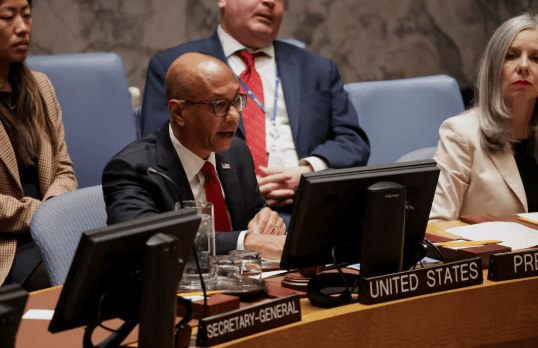By Islam Salah
The Iran nuclear deal, known as the Joint Comprehensive Plan of Action (JCPOA), is at a critical crossroads. As Tehran’s nuclear program advances, global concerns over regional stability and the potential for Iran to develop nuclear weapons are growing.
The stakes are high, and the window for a diplomatic solution is narrowing. As Iran increases its uranium enrichment, world powers are intensifying efforts to revive the deal that once helped curb Tehran’s nuclear ambitions. The question remains: can a diplomatic resolution still be reached before a new crisis unfolds?
The JCPOA’s Importance and Challenges
The Joint Comprehensive Plan of Action (JCPOA), established in 2015, was hailed as a major diplomatic breakthrough. It provided Iran with relief from international sanctions in exchange for limits on its nuclear program.
The deal, signed by Iran and six world powers—Britain, France, Germany, the United States, Russia, and China—was designed to ensure that Iran’s nuclear activities remained peaceful and that the country wouldn’t develop nuclear weapons.
However, the agreement began to unravel when the United States, under President Donald Trump, withdrew in 2018 and reimposed sanctions on Iran. This move set off a chain reaction.
In response, Iran started scaling back its commitments, including increasing uranium enrichment, raising concerns about its nuclear intentions.
The Urgency of Re-Engagement
With growing concerns over Iran’s nuclear advancements and key provisions of the JCPOA set to expire in 2025, international leaders are calling for swift action.
Rosemary DiCarlo, the UN’s political affairs chief, has stressed the need for urgent re-engagement to restore the agreement before the situation escalates further.
If diplomacy fails, the region could face even more instability. Currently, Iran’s uranium enrichment levels are 32 times the allowable limit under the JCPOA, and the International Atomic Energy Agency (IAEA) is unable to effectively monitor Iran’s nuclear activities.
The push for diplomacy centers on the belief that dialogue is the best solution. Countries like France, Germany, and the UK have expressed their commitment to bringing both the US and Iran back to the negotiating table. However, without a willingness from all sides to compromise, tensions will continue to rise.
Iran’s Stance and Regional Impact
Iran insists its nuclear program is for peaceful purposes, but its expanding uranium stockpile raises concerns. As it strengthens its capabilities, neighboring countries fear the potential for a nuclear-armed Iran, which could trigger an arms race in the region.
This escalation may potentially undermine regional stability and complicate diplomatic efforts in the Middle East.
A Race Against Time
As Iran continues to advance its nuclear program, the future of the JCPOA and regional stability remains uncertain. With increasing pressure for diplomatic action, the coming months could be crucial in determining whether a renewed agreement can be reached.
The outcome will shape the trajectory of the Middle East’s geopolitical landscape, and the need for cooperation from all involved parties is more pressing than ever.
WE ALSO SAID: Don’t Miss…Iran’s Next Move: How The Killing Of Haniyeh Will Escalate Tensions With Israel



